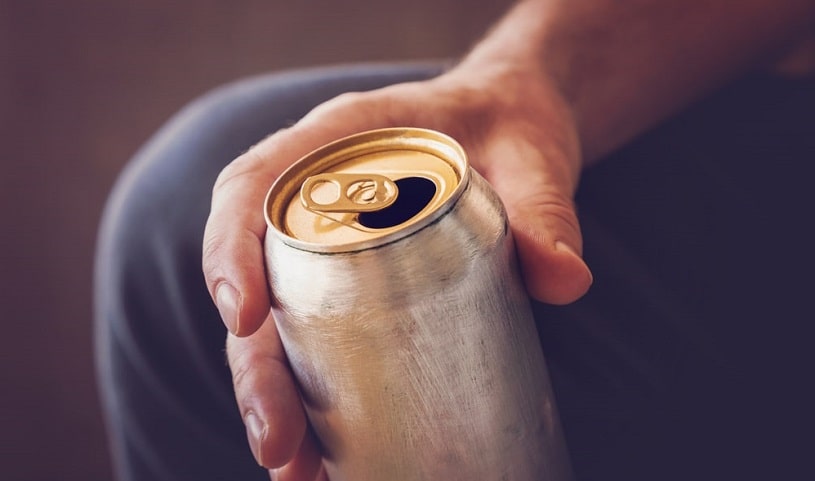
Caffeine is a stimulant drug found in coffee, tea, energy drinks, as a powder that can serve as an additive, and more. It is the most used psychoactive drug worldwide, which is no surprise considering its presence in coffee.
Table Of Contents:
It causes the user to feel more awake and energetic, which is why it is consumed by many first thing in the morning or when they need to keep awake. However, when its need has been overcome, many wonder when they’ll be able to go to sleep. This begs the question of how long does caffeine last and caffeine metabolism in the body. This article will tackle those questions, along with caffeine half-life and the safety of caffeine during pregnancy.
How Does Caffeine Work?
So, how does caffeine work? It is easily absorbed from the small intestine, and the highest concentration of the substance usually occurs about an hour after ingestion. It can last for up to five more hours after that. Once absorbed, it is transported quickly to the brain, affecting the central nervous system, thereby making it a stimulant. That is why it promotes wakefulness and stimulation of other bodily functions, such as when observing caffeine and heart rate. However, it is this same stimulant effect that causes the side effects of too much caffeine. It does not collect anywhere in the body, and it leaves through urine a few hours after it has been consumed.

How does caffeine work molecularly? Its molecular structure is similar to adenosine, a neurotransmitter. Due to this molecular resemblance, this substance can mimic the workings of adenosine and bind to adenosine receptors in brain cells, which is what causes the stimulation. Typically, adenosine, when it binds to its brain receptors, causes the subject to feel symptoms like being relaxed and sleepy by lowering nerve cell activity. However, when the molecules replace adenosine and bind to its brain cell receptors, the usual sleep-causing effects of adenosine are interrupted, causing increased neuron firing. This is the reason why drinking coffee makes people feel more “awake” and energetic.
Content Levels in Different Products
The substance is valued for its effect on the mind and the body. It’s also used in combination with certain analgesics to help with the relief of pain. These benefits make it no surprise that it has found its way into a large number of products.
There is no federal control over this drug in food or beverages, allowing product manufacturers to get away with not mentioning its content levels. Many still do, however. As it is not a nutrient, there is no daily intake value, but there is a maximum safe dose, thought to be 400mg.
Caffeinated alcoholic beverages were previously a popular product containing this drug. Still, these drinks were banned in the United States, as caffeine with alcohol was determined to be a dangerous combination.
Here Are Some Products That Contain This Drug and Their Content:
| Product | Content (milligrams) |
|---|---|
| Brewed Coffee (8 ounces) | 95 |
| Espresso (1.5 ounces) | 90 |
| Instant Coffee (8 ounces) | 60 |
| Decaffeinated Coffee (8 ounces) | 4 |
| Black Tea (1 cup) | 47 |
| Green Tea (1 cup) | 28 |
| Decaffeinated Tea (1 cup) | 2 |
| Soda (12 ounces) | 40 – 55 |
| Dark Chocolate (1 ounce) | 24 |
| Milk Chocolate (1 ounce) | 6 |
| Energy Drinks (16 ounces) | 170 |
How Long Do the Effects Last?
When people consume coffee in the morning, they don’t give much thought to how long it takes for it to kick in or how long its effects last. When they drink it or any other caffeine-containing drink at night, though, they may want to know how long it lasts. After all, they usually don’t want to stay up the entire night.

Sensitivity and tolerance make this tricky to answer, as the duration of the effects depend on the person and whether they consume it regularly or not. For the average person, however, it’s completely absorbed within 45 minutes of consumption. Its effects will peak within this time. Four to six hours after the drug was consumed, the effects should mostly be gone, which is mostly in tune with caffeine half-life.
Caffeine Half-Life
The average caffeine half-life in healthy people is about five hours, though as earlier stated, depending on the individual, it can be as little as 1.5 hours or nearly 10 hours. So how long the effects will last precisely will depend on the individual, their metabolism, and their response to the substance, such as the presence of sensitivity, tolerance, or a caffeine allergy.
Effect on Sleep
While there is no inherent danger in consuming coffee or any beverages containing the drug before sleep, it will likely make falling asleep very difficult due to its stimulant effect in the CNS.
A study was done in 2013 aimed to see the effects that the drug had when taken at bedtime, three hours prior, and six hours prior. 400mg was used, which is about three or four cups of coffee.
The study found that each of these doses had significant effects on the sleep of the people involved, showing that the substance taken even six hours before bedtime can significantly affect sleep. For instance, the total time of sleep was reduced by about an hour, regardless of when it was taken. Wake time during sleep also increased for all groups in the study, with 8 minutes added in the six-hour group and nearly 30 minutes in the three-hour group.
It’s recommended that any beverages be taken six or more hours before sleep as it can significantly affect the quality of sleep. This will give enough time for caffeine metabolism before bedtime.
Caffeine During Pregnancy
Many drugs and products are best avoided during pregnancy, but for those addicted to caffeine, abstaining from coffee for nine months is something that many people would find challenging to do. As a result, many pregnant women want to know about the safety of caffeine during pregnancy.

While it isn’t contraindicated in pregnancy, it’s best to minimize or completely avoid consuming coffee or other products containing caffeine during pregnancy. Evidence suggests that even minimal coffee consumption daily results in small birth weights for the infants born to these mothers.
High intake, measured as more than 300mg every day, was linked to small birth weight, premature births, and stillbirth. This shows the importance of reducing intake during pregnancy. Caffeine and pregnancy are not compatible with heavier coffee drinkers. Caffeine alternatives such as chicory coffee and rooibos tea are better options.
The Importance of Staying Safe with Coffee
Coffee, tea, chocolate, and other caffeine-containing products have become such a significant part of daily life for many people. It is not a dangerous substance when taken in average amounts, but consuming it in excess during pregnancy or too close to bedtime can have adverse effects. It’s important to note that the duration of effect will depend on the amount ingested. Different products have varying amounts of the substance present and it can influence how long it remains in the body.
Knowing the relationship between caffeine and pregnancy, as well as sleep, will help to make healthier decisions. It is essential to keep the consumption of these products moderate to ensure good health and wellbeing.
Hope Without Commitment
Find the best treatment options. Call our free and confidential helpline
Most private insurances accepted
Find Drug Rehabilitation Centers Near You Anywhere In the US
Addiction Resource team has compiled an extensive list of the top drug rehabilitation facilities around the country. Use our locator tool to find the best centers near you.
Page Sources
- United States Food and Drug Administration, Spilling the Beans: How Much Caffeine is Too Much?, 2018, https://www.fda.gov/consumers/consumer-updates/spilling-beans-how-much-caffeine-too-much
- Harvard T.H. Chan School of Public Health, Caffeine, https://www.hsph.harvard.edu/nutritionsource/caffeine/
- Institute of Medicine (US) Committee on Military Nutrition Research. Caffeine for the Sustainment of Mental Task Performance: Formulations for Military Operations. Washington (DC): National Academies Press (US); 2001. 2, Pharmacology of Caffeine. https://www.ncbi.nlm.nih.gov/books/NBK223808/
- Drake, C., Roehrs, T., Shambroom, J., & Roth, T. (2013). Caffeine effects on sleep taken 0, 3, or 6 hours before going to bed. Journal of clinical sleep medicine : JCSM : official publication of the American Academy of Sleep Medicine, 9(11), 1195–1200. https://www.ncbi.nlm.nih.gov/pmc/articles/PMC3805807/
- National Institutes of Health, Moderate daily caffeine intake during pregnancy may lead to smaller birth size, 2021, https://www.nih.gov/news-events/news-releases/moderate-daily-caffeine-intake-during-pregnancy-may-lead-smaller-birth-size
- World Health Organization, Restricting caffeine intake during pregnancy, 2019, https://www.who.int/elena/titles/caffeine-pregnancy/en/
- United States Food and Drug Administration, Caffeinated Alcoholic Beverages, 2010, https://www.fda.gov/food/food-additives-petitions/caffeinated-alcoholic-beverages


 Reviewed by:
Reviewed by:  Written by:
Written by: 

 FindTreatment.gov
FindTreatment.gov